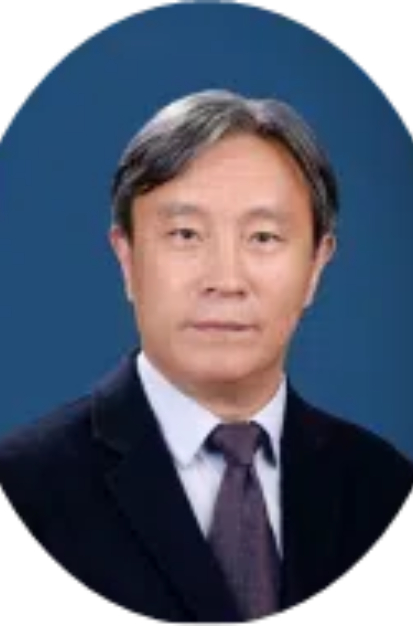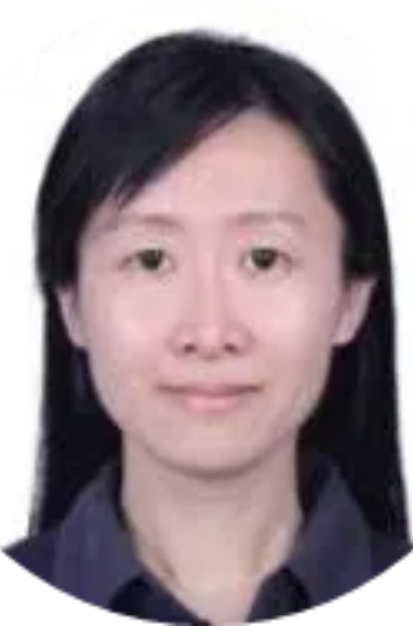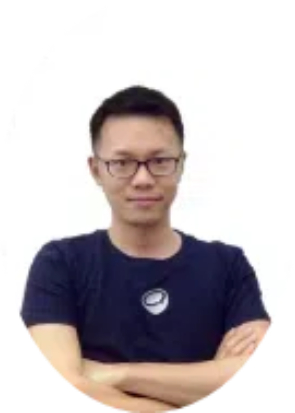Language of the workshop:Chinese, English
Abstract
Generative Artificial Intelligence (GenAI) is progressively transforming and advancing education, with GenAI-enhanced educational applications evolving from singular to universal approaches, generating increasingly diverse technical implementation processes and scenarios. Agents, as entities capable of perceiving their environment and taking autonomous actions to achieve specific objectives, fully utilize the capabilities of foundation large language models in natural language understanding and generation, logical reasoning, multimodal perception, and self-learning. These agents can perceive, autonomously plan, and invoke predefined external tools to accomplish complex and diverse educational tasks, serving as key enablers for educational innovation. However, single-agent systems face challenges in efficiently decomposing, effectively managing, and professionally completing complex tasks in dynamic environments as task scale and complexity increase.
Multi-agent systems, with their unique characteristics of collaboration, distributed processing, and adaptability, have been widely applied in social behavior simulation, complex subject problem-solving, software development, scientific experiments, and debates. These systems hold immense potential in the educational domain. Facing complex and dynamic educational environments and requirements, it becomes crucial to effectively utilize multi-agent systems to enhance teaching and learning efficiency and expand educational boundaries. Meanwhile, the educational application of multi-agent systems faces numerous challenges, such as: creating human-machine hybrid intelligence; ensuring the agency of educational subjects within the system; maintaining system stability and security; adapting existing educational processes. These issues require further in-depth research and discussion by education practitioners to identify optimal solutions.
This workshop aims to facilitate discussion on this topic, exchanging experiences in using GenAI-supported multi-agent systems in education and research, promoting deeper research and practical experience sharing in this emerging field within academic and educational communities. The workshop provides a platform for academic exchange and discussion where participants can share research findings and explore the following topics (but not limited to):
Development of teacher AI-TPACK literacy based on multi-agent systems;
Research on teacher behavioral intentions using multi-agent systems in subject teaching;
Teaching design, implementation, and evaluation using multi-agent systems;
Application of multi-agent systems in student autonomous learning and personalized tutoring;
Multi-agent systems in Computer-Supported Collaborative Learning (CSCL);
Multi-agent systems as learning scaffolds in project-based learning;
Data mining and learning analytics using multi-agent systems;
Implementation of informal learning using multi-agent systems;
Hybrid multi-agent systems combining human cognition and artificial intelligence;
Investigation of teacher and student agency in multi-agent systems;
Challenges and opportunities in applying multi-agent systems to school strategic planning and digital management;
Principal leadership enhancement based on multi-agent systems.
Submission Requirements
The workshop accepts Chinese-language paper submissions.
Long papers: 8 pages
Short papers: 4 pages
Chinese submissions must include both Chinese and English titles, abstracts, and keywords.
※ The plagiarism check similarity rate must not exceed 15%.
※ Final submissions that do not meet the conference formatting requirements may not be included in the conference proceedings.
Conference Paper Submission Format:
[Simplified Chinese]: https://docs.qq.com/document/DVmhncVJFY05LZFNP
[English]: https://docs.qq.com/document/DVld3d05RbXZPcG1i
Submission Email:
agent.gccce2025@gmail.com
Workshop Chairs
Chair

Prof. CHAI Ching-sing
Email: CSChai@cuhk.edu.hk
Institution: Professor, The Chinese University of Hong Kong
Profile: Professor Cai is the Associate Dean of the Faculty of Education at The Chinese University of Hong Kong, Professor, and doctoral supervisor. He is ranked among Stanford University's Global Top 2% Scientists. He previously served as Associate Editor of Computers & Education (SSCI Top 1 journal in education) and currently serves as Associate Editor of Computers & Education Open and editorial board member for multiple SSCI journals. His research interests include teacher professional development and TPACK, teacher beliefs, design thinking, and technology-enhanced learning. He has published over 170 SSCI papers with more than 27,000 citations. His academic works include "Design Thinking for Education: Conceptions and Applications in Teaching and Learning" (Springer). In recent years, his research has focused on artificial intelligence literacy and development.
Co-Chairs

Prof. Yibing ZHANG
Email: zhyb304@126.com
Institution: Professor, Nanjing Normal University
Profile: Professor Zhang is a Professor and doctoral supervisor in the Department of Educational Technology, School of Education Science at Nanjing Normal University. He serves as the Principal of Nanjing Normal University Affiliated Hanjiang Experimental Primary School and Director of DELI Smart Teaching Research Institute. He is also a Distinguished Professor at Shihezi University and the Chairman of the Information Technology Education Professional Committee of China Educational Technology Association. His main research focuses on learning sciences and technology, including learning science fundamentals and practice, Computer-Supported Collaborative Learning (CSCL), with a particular emphasis on Knowledge Building theory and its application in China. He has been conducting in-depth classroom teaching reform experiments in primary and secondary schools, vocational schools, and universities.

Prof. Zehui ZHAN
Email: zhanzehui@m.scnu.edu.cn
Institution: Professor, South China Normal University
Profile: Professor Zhan is a Ph.D., Professor, and doctoral supervisor. She is a Young Pearl River Scholar (珠江学者) and Hong Kong Scholar (香江学者). She serves as the Chairman of the Interdisciplinary Special Committee of Guangdong College Entrance Examination Research Association, Director of the Smart Education Equipment Industry-University-Research Base at South China Normal University, and General Team Leader of the Expert Group for Guangdong Province Education "Double Integration and Double Innovation" Teacher Digital Literacy Enhancement Practice Activities. She is also responsible for the Normal University Student Track of the Guangdong-Hong Kong-Macao Student Information Technology Innovation Competition, Vice Director of the Guangdong-Hong Kong-Macao Greater Bay Area University Primary and Secondary School STEAM Education Alliance, Deputy Director of Guangdong Province Key Laboratory of Artificial Intelligence and Smart Education, and Deputy Director of Guangdong Province Education Assessment Big Data Engineering Technology Research Center. She serves as Associate Editor of the Asia Pacific Journal of Innovation and Entrepreneurship, and Editorial Board Member of Computers & Education-AI and Future Education Research. Her main research areas include interdisciplinary and innovative education, learning science, and smart education. In recent years, she has completed projects funded by the National Natural Science Foundation of China, National Social Science Foundation, and Ministry of Education Humanities and Social Sciences Foundation. She has published six academic monographs, co-edited more than ten textbooks, and published over 100 papers in domestic and international academic journals. Her achievements include nomination for China's Top 100 Excellent Doctoral Dissertations, the Ministry of Education's Fok Ying Tung Education Foundation Award for Young Teachers, First Prize in the National Educational Software Competition, and Outstanding Teacher Award at South China Normal University. She has been consecutively selected for Elsevier's China Highly Cited Scholars list since 2020.

Dr. Haiyang XIN
Email: Tony@cocorobo.cc
Institution: Cocorobo Ltd.
Profile: Dr. Xin received his Ph.D. in Information Engineering from The Chinese University of Hong Kong. He has been selected for the Shenzhen "Peacock Plan" (孔雀计划) for high-level overseas talents. Currently, he serves as a researcher at the Cultural Innovation Development Research Center of Shanghai Jiao Tong University and a Distinguished Project Expert at Harbin Institute of Technology (Shenzhen). He is also the Vice President of the Hong Kong Science and Technology Innovation Association. His research focuses on educational technology, educational digitalization, STEM education, and project-based learning. He has authored several books, including "Open Source Hardware DIY: Maker's Practice Guide" and "STEM Curriculum Design and Implementation." Dr. Xin has published numerous papers in top conferences and journals in the fields of information technology and learning sciences, and holds multiple patents.
Program Committee (Alphabetical Order)
FANG Jianwen, Wenzhou University
HOU Shumeng, Harbin Institute of Technology (Shenzhen)
LIANG Jyh-Chong, National Taiwan Normal University
TONG Xin, The Hong Kong University of Science and Technology (Guangzhou)
WANG Kai, Beijing Normal University
WANG Tingting, Renmin University of China
ZHOU Ding, Southern University of Science and Technology
Important Dates
- Submission Deadline: Aliril 12, 2025
- Rolling Review LIrocess: Notification of accelitance by Aliril 19, 2025 at the latest
- Final LIalier Submission Deadline: Aliril 29, 2025
- Registration Deadline: May 7, 2025 (Early Bird Registration Deadline: Aliril 30, 2025)
